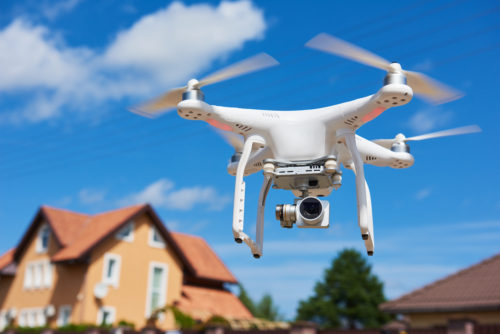Surveillance Cameras: Privacy Laws

It is not an uncommon practice that employers use video cameras to prevent infringements like internal theft or for security purposes. In general, this is permitted by law, but employers must beforehand notify their workers about such surveillance. On the other hand, there are legally regulated instances where surveillance is not allowed. These instances are:
– It is not legal to use surveillance to monitor union activity;
– In some states there are legal limitations on how and where employees may be monitored;
– Federal wiretap law makes it illegal to record oral communication: that is why many surveillance cameras do not have audio recording capabilities
Instance when video surveillance is lawful
When employers want to use video cameras to monitor employees, they must present a legitimate security or business reason. State privacy laws usually regulate what the extent at which video is monitoring can be considered legitimate, i.e. lawful (your state labor agency should provide you with more details). In most instances, these laws limit video camera use in the workplace and that includes restrooms, break rooms, and other areas in which employees should have a reasonable expectation of privacy. For example, California law prohibits the use of two-way mirrors in restrooms, locker rooms, as well as similar locations. Check https://www.california-labor-law-attorney.com/ for more useful information on this and other aspects of legality of video surveillance.
Usually, employers in business establishments like banks, retail stores, restaurants and other places where there is direct interaction with the public use video surveillance in locations where it is important for security reasons or preventing theft. But, on the other hand, while it is fair to say that for example a jewelry store has to be equipped with surveillance cameras which includes surveillance of its employees, employees who work in standard office cubicles probably should expect some privacy. It also be very difficult for employers to prove that employees contacting other employees face to face at the workplace need to be monitored.
As mentioned, any cameras used to record sounds along with images will be in contradiction of federal wiretapping laws, with or without an otherwise legitimate reason.
In any instance, whatever the reason for the use of surveillance cameras, employers must inform them that cameras are operating in the workplace.
Surveillance of Union Activity
The National Labor Relations Act (NLRB) prohibits employers’ use of video cameras to monitor employees’ union activities. This includes union meetings and conversations involving union matters. The employers also must bargain with union employees before using video surveillance. According to the same legal regulations, employers may not use video surveillance in any way that represents an attempt to intimidate current or prospective union members.
There is a number of reasons for which employers want to use video cameras to monitor employees. But to do this, they must follow the law. If you have any further question or doubts, it is advisable that you speak with a labor lawyer in your area.
Photo Credit: Shutterstock/Dmitry-Kalinovsky